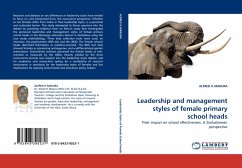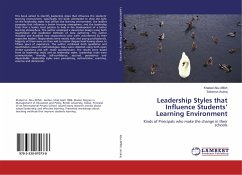Research and debates on sex differences in leadership styles have tended to focus on, and interpreted from, the masculinist perspective. Whether or not females differ from males in their leadership styles, is a perennial and contested terrain. This study attempted to throw spanners into the debate by providing evidence from an African study that investigated the perceived leadership and management styles of female primary school heads in the Masvingo education district in Zimbabwe using the case study methodology. Three data collection tools were used: an interview, the psychometric BSRI test and the LBDQ. The female schools heads described themselves as relations-oriented. The BSRI test data showed females as possessing androgynous and undifferentiated gender orientations. Subordinate teachers perceived the female heads as task-oriented as measured by the LBDQ. Results yielded by the three instruments provide new insights into the leadership styles debate, and for academics and researchers opting for a multiplicity of research instruments in searching for the leadership styles of females and has implications for aspiring school heads and education policy makers.








